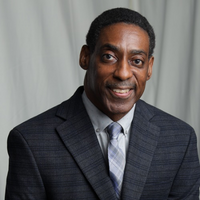
by David W. Marshall
(Trice Edney Wire) – The meaning of being “woke” is simple. It means being awakened to the needs of others. Being “woke” is understanding something you may not have previously understood while now arriving at the point of acceptance. It means to be well-informed, thoughtful, compassionate, humble, and kind. Being “woke” is having an eagerness to make the world a better place for all people. While the backlash against “wokeism” is growing, many people fail to understand its simplistic meaning. Others fully understand it, but they find that the rightful outcome of social justice is too uncomfortable to accept.
As we celebrate Black History Month this February, we cannot forget how Black history remains a valuable piece of American history; the two are intertwined. Regarding professional sports, sports will never be immune from the historical impact of social and cultural issues. One example is Jack Kemp and the 1965 AFL All-Star football game. Kemp was a nine-term Republican Congressman from Western New York. His racial awakening was evident long before “wokeism” became common in modern politics. Before his political career, Kemp was once a star quarterback in the old AFL (American Football League).
Kemp earned the AFL Most Valuable Player award in 1965 after leading the Buffalo Bills to a second consecutive football championship. He played in the AFL All-Star game seven times during his 10-year career. He was also co-founder of the AFL Players Association. Despite his success on the football field and later in politics, little is known about his role in the 1965 AFL All-Star Game boycott. The 1965 boycott was often referred to as “The Stand” and remains an unfamiliar story of Black history.
Following the completion of the 1964 AFL season, the 1965 AFL All-Star game was scheduled to be played in New Orleans, a city hungry for its own professional football franchise. Leaders of the host city were faced with an awkward balancing act. They wanted to show representatives from the AFL and the NFL (National Football League) that New Orleans could support its own franchise but had to do so in the racially charged South during a period shortly after the passage of the 1964 Civil Rights Act. City sponsors assured AFL representatives that the city would be safe for its Black players. Unfortunately, a different story unfolded once players began arriving in the city.
Many Black players were quick to realize that Jim Crow was still alive and well despite the new law that banned discrimination based on race. The players were repeatedly denied cab service or taken to the wrong locations. One group found themselves stranded for more than three hours. Players were constantly refused entrance to restaurants and other nightspots. The verbal threats and harassment were relentless. Therefore, it was just a matter of time before the continuous humiliation and disrespect overshadowed any excitement or desire to play in the exhibition game. Eventually, the players met to decide whether to leave the city or participate in the game.
Initially, all of the white players who attended the meeting wanted to play. There was no consensus among the Black players. Some wanted to play, and others were ready to leave; then leadership took over the meeting. Several of the Black veterans spoke up with passion. The New Orleans experience was no longer about a football game or the pride of being named an All-Star. It was about human dignity and respect. Later that day, each of the Black players packed their bags and returned home. Several white players did the same, but only after white veterans Ron Mix and Jack Kemp made the case directly to them. Ron Mix told them, “I want to play the game; however, I respect what the Black players are going through, so I’m not playing.” Jack Kemp echoed those same sentiments when he spoke. The next day, the AFL commissioner, realizing the magnitude of the problem, announced the game would be played in Houston rather than New Orleans.
The 1965 AFL All-Star game represented the first-ever boycott of a host city by professional athletes of any sport. Years later, many players saw their careers shortened or negatively impacted by their participation in the walkout. But the long-term financial consequences on a city still struggling with its hate-filled traditions were profound. “The Stand” was a total surprise and embarrassment to a proud New Orleans community. Having an empty Tulane Stadium on the scheduled day of the All-Star game was a powerful statement against white supremacy while serving as a major wake-up call to the New Orleans establishment. It forced the city to reflect upon itself and move toward making hard social changes to be seriously considered for a professional football team. Ultimately, the city was awarded the New Orleans Saints NFL franchise.
Later in his political career, Kemp said that the pain and humiliation he felt for his Black teammates in the 1960s became “etched in my memory” and that when he got into politics, he pledged to be their “voice” in the Republican Party. William H. Gray III, who once served in the House of Representatives with Kemp, and who later became president of the United Negro College Fund, said Kemp’s overture is “record-breaking” for a Republican. “The Stand” proved that for white supremacy to die, ill-willed whites must consistently feel the direct pain resulting from their hate and injustice. We know that will likely never happen with the current anti-wokeism, anti-DEI, and anti-CRT movements.
David W. Marshall is the founder of the faith-based organization, TRB: The Reconciled Body, and author of the book God Bless Our Divided America.















